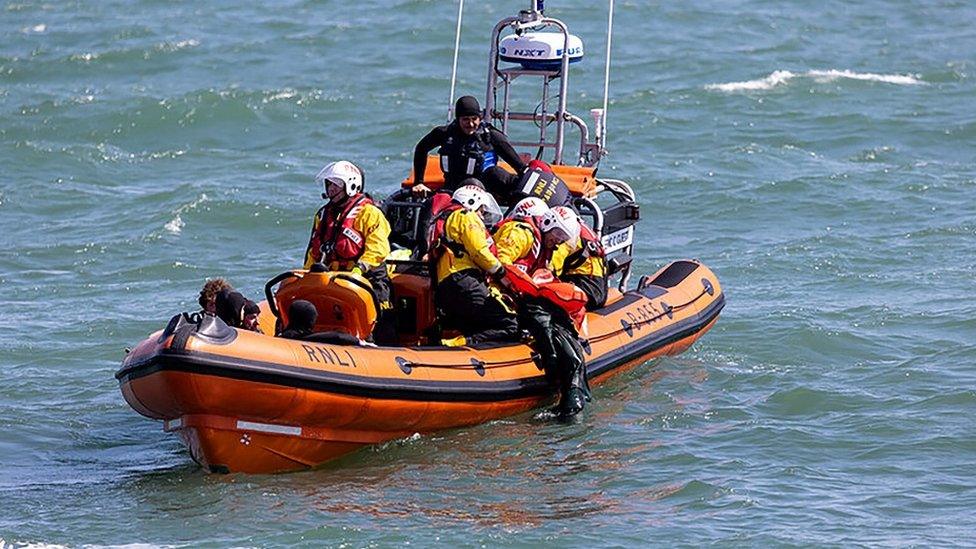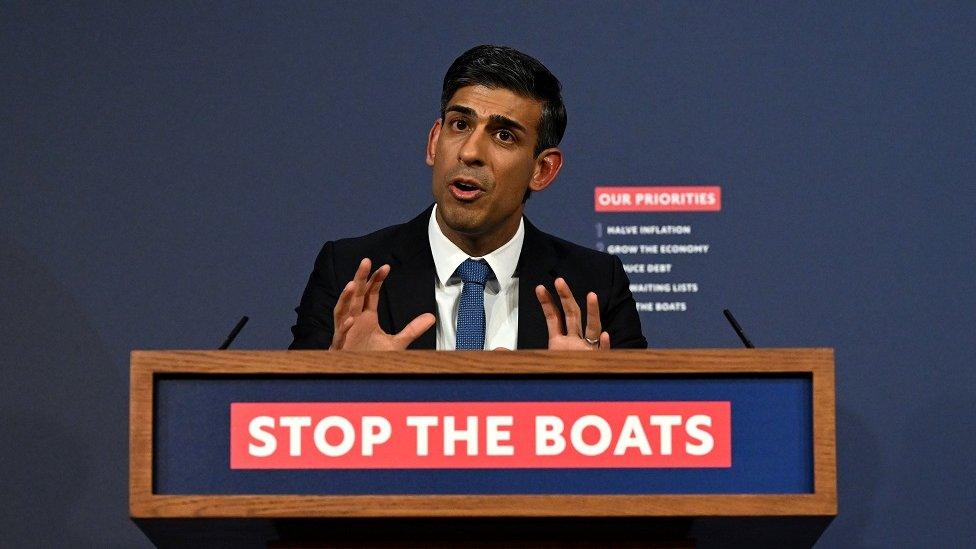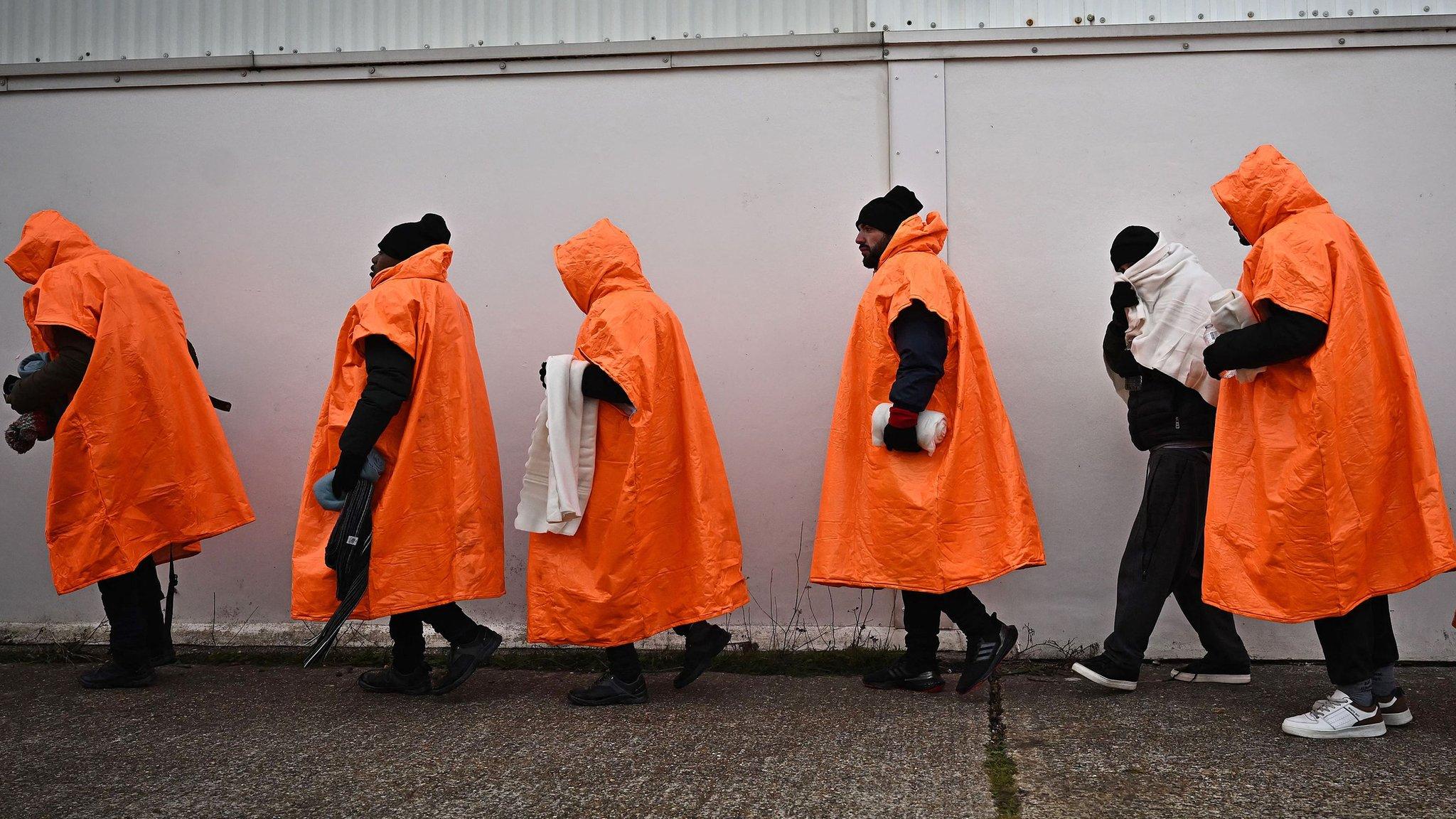Migration bill: Government suffers series of defeats in Lords
- Published

The government has suffered a series of defeats in the House of Lords over its flagship bill to stop small boats crossing the English Channel.
Peers voted to amend the Illegal Migration Bill to prevent new deportation powers being backdated to March of this year.
They also added safeguards aimed at protecting modern slavery victims, and unaccompanied child migrants.
The changes could be reversed by MPs at a later stage.
The bill, unveiled in March, is a central part of Prime Minister Rishi Sunak's promise to "stop" small boat crossings by the end of this year.
It would place a legal duty on the government to detain and remove those arriving in the UK illegally, to Rwanda or another "safe" third country.
It has prompted accusations it will breach international refugee laws, as well as undermining existing UK regulations to prevent modern slavery.
The bill was passed by the Commons in March, after ministers made a series of concessions to head off rebellions from Conservative MPs.
But it has faced heavy criticism in the Lords, where the government does not have a majority, particularly from Labour, Lib Dem and crossbench peers.
In the first of three scheduled days for votes on proposed changes, they amended the bill to reverse a government plan for the new deportation duty to be backdated to March, when the bill was introduced.
Home Office Minister Lord Murray of Blidworth said this was "critical" to prevent a surge of crossings in the run-up to the bill becoming law.
But Lord Carlile of Berriew, a crossbench - or non-party - peer who proposed the amendment, said backdating the powers would set a "dangerous precedent" and ministers had not produced evidence it was needed.
Legal protections
In other votes, peers approved a change that would mean victims of trafficking could not be removed before they can apply to the national system that screens potential victims.
Lord Hunt, the Labour peer that proposed it, said the current version of the bill - which would take away temporary protections against removal offered to suspected victims - would "completely undermine" UK legal protections for victims.
They also backed an amendment from Labour peer Lord Dubs that removes new powers allowing the government to set out in the future when unaccompanied child migrants could have their asylum claims deemed inadmissible.
And they backed an amendment from Labour's Baroness Chakrabarti that would specify the bill must comply with international refugee laws.
Lord Murray of Blidworth accused peers of trying to derail the Bill, saying the "unnecessary" amendment would incorporate international law "by the backdoor".
Further votes on additional protections for asylum seekers who who not been deported after six months, and a ban on deporting to LGBT people to various countries, including Rwanda, had expected to take place on Wednesday.
But after a technical error with the Lords voting system, the proposed changes are new expected to be put to a vote next week, when the bill continues its passage through the upper house.
Related topics
- Published9 March 2023

- Published13 December 2023
